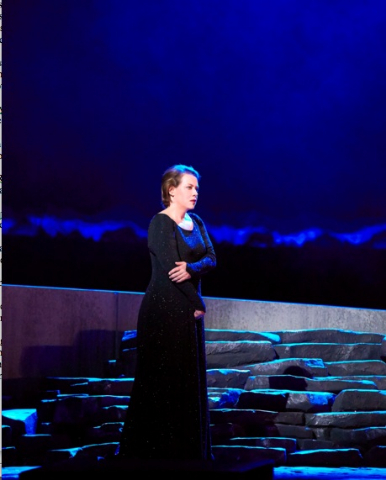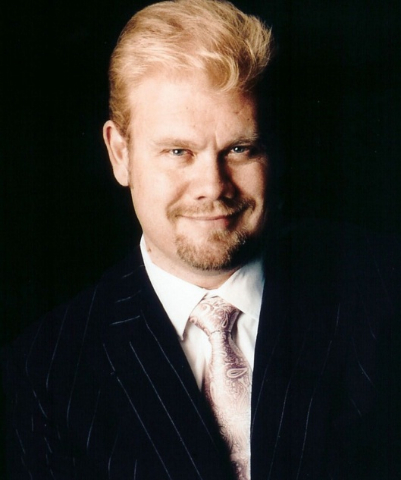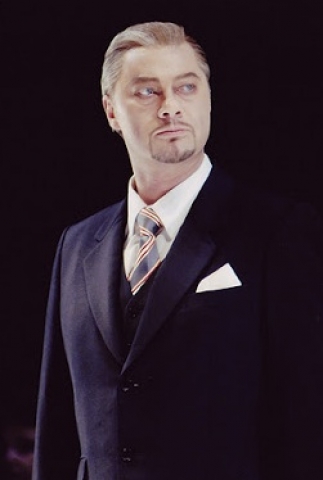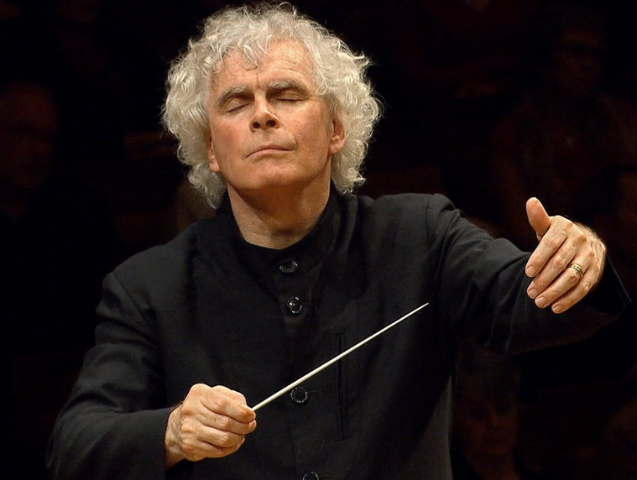Metropolitan Opera's Controversial Opening
Cast in Trenchcoats Shine in Tristan and Isolde
By: Susan Hall - Sep 27, 2016
Tristan and Isolde
By Richard Wagner
Conducted by Sir Simon Rattle
Cast: Nina Stemme, Stuart Skelton, Rene Pape, Evgeny Nitikin, Ekaterina Gubanova.
Metropolitan Opera House
New York, New York
September 26, 2016
Isolde is one of Nina Stemme's signature roles. In Vienna, she starred in a David McVicar production. The evening was glorious. The deep blue of the evening sky which provided cover for endless passion is etched forever in the mind's eye.
Now we have added to the luxury cast four singers of equal stature. Stuart Skelton shines in the role of Tristan. His voice is huge and yet delicate. The intensity is created not by the ring but by a mass of sound. There is no push as he reaches.
The subtlety of Skelton's heldentenor becomes apparent as the evening goes on. While his voice has the requisite edge, that does not dominate. Its sheer size perfectly delivers Wagner's lines. The lyricism of his singing immediately delights. This Australian is an opera super star.
While we preferred hearing Stemme in the Vienna Opera House, which is about half the size of the Metropolitan's, she still stands out as the go to soprano for this role. Caressing her notes, stretching to express her passions and frustrations, Stemme is a mesmerizing performer.
Rene Pape is a force of nature. Nothing in his performance of the role of King Marke suggests that he is an indulgent man, but perhaps because he is, he captures the emotion of the cuckolded King who too late realizes that he has consigned the lovers to death.
Ekaterina Gubanova is a Met favorite and it is easy to see why as she sings Brangane. Likewise Evgeny Nikitin, a wonderful Klingsor in Parsifal, extends himself as Kurwenal.
Mariusz Trelinki produced a dramatic and startling set for Bluebeard's Castle. Most of Tristan takes place at sea. Water has been marvelously presented in video visuals of late. At the Met, Pearl Fishers gave a dramatic sense of the sea. At New York City Opera, Florencia en Amazones had another workable and effective idea. In Breaking the Waves, a new opera presented by Opera Philadelphia, yet another idea is presented. So many ideas for a lush sense of the water places for Tristan. So many opportunities.
While Stemme and Skelton make more plausible lovers than say Ben Heppner and Jane Eaglen, plausible is not an issue in opera. We want to be transported. In Tristan we are dealing with a philosophical discussion of love carried out by let’s face it unbelievable characters. Nothing about them is of the real world. At the Met, we have an conductor and orchestra and singers who take us to new heights. Why sink the opera with scenes in the boiler room of a boat? There, I’ve said it.
Rattle's conducting brings forth sumptuous music which holds opera aficionados and even the casual attendant's ear enthralled. This experience should not be messed up with a literal set or costumes. Love potion changed for a death potion, the notion that love is equivalent to death and can only take place at night, the second-act continuous suggestion of erotic desire, which the approach of day kills, all these notions are best presented, as Wagner did, with the sheer beauty of music, and simple sets and costumes that do not distract. “To drown now, to swoon into the night, the last delight,” sings Isolde.
Rattle and the singers listen to the composer. Wagner writes: The opera is “one long-articulated impulse, in which insatiable longing swells up from the timidest avowal of the most delicate attraction, through anxious sighs, hope and fears, laments and wishes, rapture and torments, to the mightiest onset and to the most powerful effort to find the breach that will reveal to the infinitely crazing heart the path into the sea of love’s endless rapture. In vainest power spent, the heart sinks back."
Rattle and the Met orchestra get this absolutely. The singers do too. Yet the production upsets the pleasure they present at every turn.
Given the off-putting production values it's best to reflect before buying tickets to this HD. Listen to the opera on the radio. It's free and you can hear the glorious voices.




